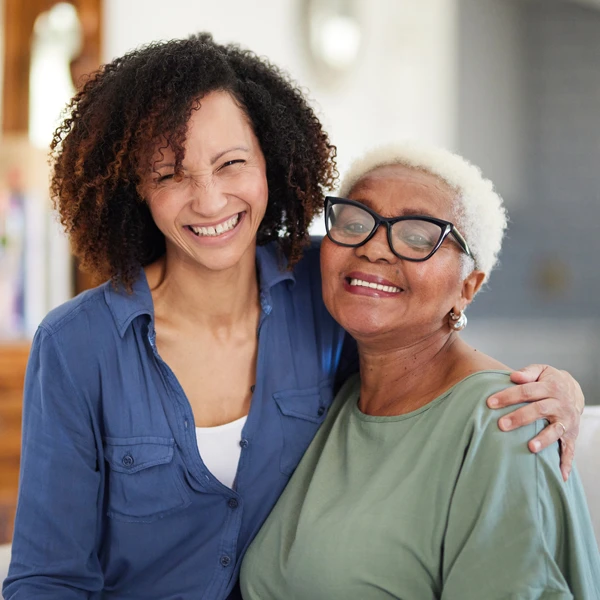
Make 4x the Impact in the Fight to End Alzheimer’s
Make 4x the Impact in the Fight to End Alzheimer’s
For a limited time, your gift can go four times as far to support essential care, support and research — thanks to our Flash 48-Hour 4x Match Challenge. Give now before the match ends at midnight on Feb. 20.
Donate NowLaurie Hernandez: Sticking to the Moment
Olympic Gold Medalist Focused on the Present While Her Grandmother Fought Alzheimer’s
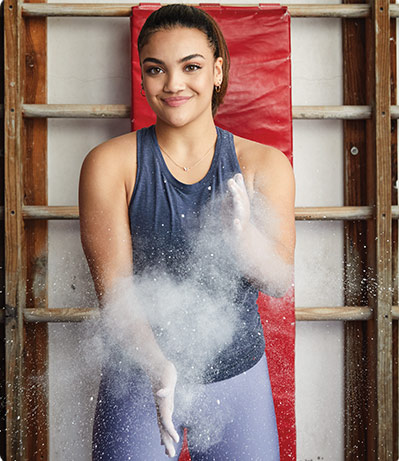 Olympic gold medalist focused on the present while her grandmother fought Alzheimer’s
Olympic gold medalist focused on the present while her grandmother fought Alzheimer’s
Standing on the first-place podium at the 2016 Summer Olympics in Rio de Janeiro, gymnast Laurie Hernandez felt as if the world around her had stopped. Beaming with pride, the then-16-year-old athlete tried to focus on her five senses.“I tried to take everything in,” Hernandez, now 20, says. “I saw our flag go up and felt the gold medal around my neck. I smelled chalk and heard the national anthem and just tried holding on to the moment as close as possible.”
Staying present is something Hernandez does well, both during her high-stakes routines and in her daily life. It’s a skill that keeps her focused — and helped her maintain one of the most important relationships in her life when Alzheimer’s threatened to steal it away. At the height of training for the 2016 Games, her paternal grandmother, Brunilda Hernandez, or “Yeya,” was diagnosed with Alzheimer’s.
Accepting a diagnosis
People deal with accepting a diagnosis of Alzheimer’s or another dementia in different ways.
Light of the family
Hernandez and her grandmother developed a close bond early on. Because her parents had long commutes from their home in New Jersey to work in New York City, Yeya, who lived with the family, was in charge of the morning routine for Hernandez and her two siblings.“She was the one to wake me up and do my hair,” she recalls. “We would walk to school together every day and have little morning chats on the way.”
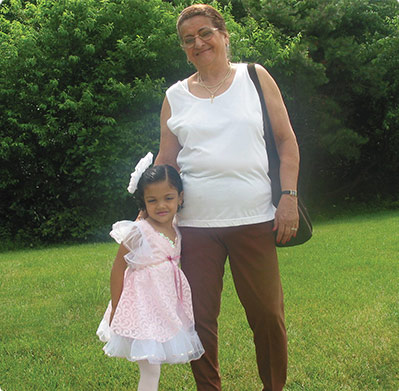 When Hernandez began homeschooling to accommodate her intensifying gymnastics schedule, Yeya was always close by, making her a snack or playfully teasing Hernandez about her pronunciation of Spanish words. Yeya was a “stubborn firecracker,” Hernandez says. “She was the light of our whole family.”
When Hernandez began homeschooling to accommodate her intensifying gymnastics schedule, Yeya was always close by, making her a snack or playfully teasing Hernandez about her pronunciation of Spanish words. Yeya was a “stubborn firecracker,” Hernandez says. “She was the light of our whole family.”Ramping up to Rio
The family began noticing significant changes in Yeya’s memory and mood in 2016. She started repeating herself constantly and stopped recognizing familiar people, like her longtime nurse. Because of Hernandez’s schedule training and competing, she spent weeks on the road away from Yeya. But when she did return home, the changes she witnessed in her family’s matriarch were heartbreaking.“It was devastating to see the tough lady I’d always known slip away,” she says. “So much was happening that year that I don’t think I was able to process it all.”
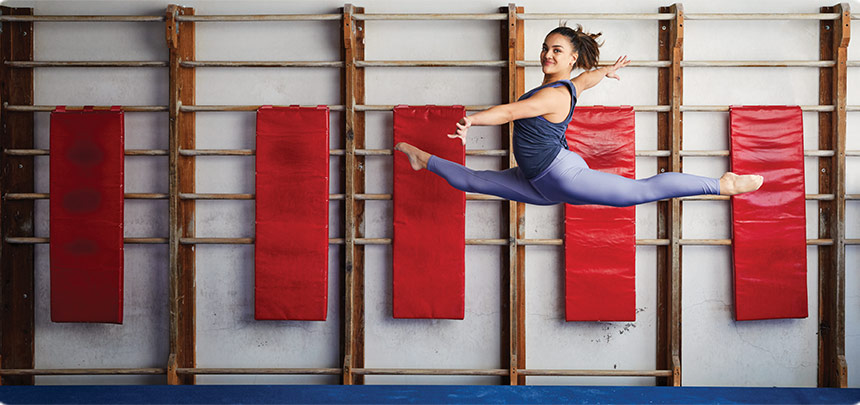
After qualifying for the 2016 Games, Hernandez was ecstatic to share the news with Yeya, who’d been a pillar of support throughout her gymnastics career. When she told her grandmother about making the team, Yeya’s response was initially underwhelming.
“She said, ‘Oh that’s great!’ I don’t think she fully believed me. It wasn’t until she saw on TV that I made the Olympic team that she came busting out of her room, excited and surprised,” Hernandez says.
Rather than dwell on how the disease was changing Yeya, Hernandez chose to keep things light.
Alzheimer's can change relationships
When someone is diagnosed with Alzheimer’s, they’re still the same person, but family and friends may be uncertain how to respond.
Yeya’s health declined substantially in the weeks prior to the Olympics. In addition to battling Alzheimer’s, she was diagnosed with aggressive stomach cancer. The family faced a paradox of emotions: joy and excitement for Hernandez, and worry and sadness for Yeya.
“It was a tough time for us,” Hernandez says. “Our family is so close-knit and while nothing was going to make it better, facing it together was the best way to get through.”
Keeping her spirit alive
After winning Olympic gold in the women’s artistic team all-around and silver in the women’s balance beam, Laurie was asked to compete on ABC’s hit show “Dancing with the Stars.” She was ecstatic about the opportunity — and knew Yeya would feel the same."I learned subconsciously from her how to be a fighter."
Laurie Hernandez
“I told her that I was going to be on ‘Dancing with the Stars’ and she said, ‘Well, when you win the trophy, you have to bring it back to me because I watch that show and I need to hold it.’ She was way more excited about the show than my two Olympic medals,” Hernandez says.
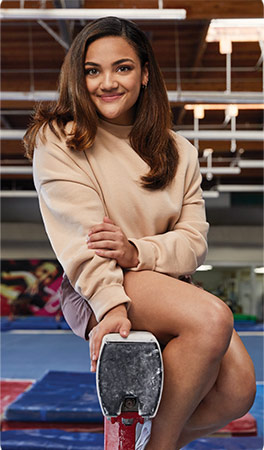 Sadly, Yeya died in November 2016, before a new “Dancing” champion could be crowned. Hernandez fought back tears during her performance on the show four days later, dancing through her grief with Yeya’s photo on a screen behind her.
Sadly, Yeya died in November 2016, before a new “Dancing” champion could be crowned. Hernandez fought back tears during her performance on the show four days later, dancing through her grief with Yeya’s photo on a screen behind her.Though she never got to see it, Hernandez did as Yeya asked, winning the competition and bringing home the trophy as the youngest celebrity in the show’s history.
Hernandez recognizes that Yeya’s feisty, fighting spirit lives on through her.
“I realize now that a lot of my stubbornness and drive to keep moving forward when things get hard or aren’t going the way I want them comes from her,” she says. “I learned subconsciously from her how to be a fighter.”
Photos 1, 3 and 4 by Robert Trachtenberg.
